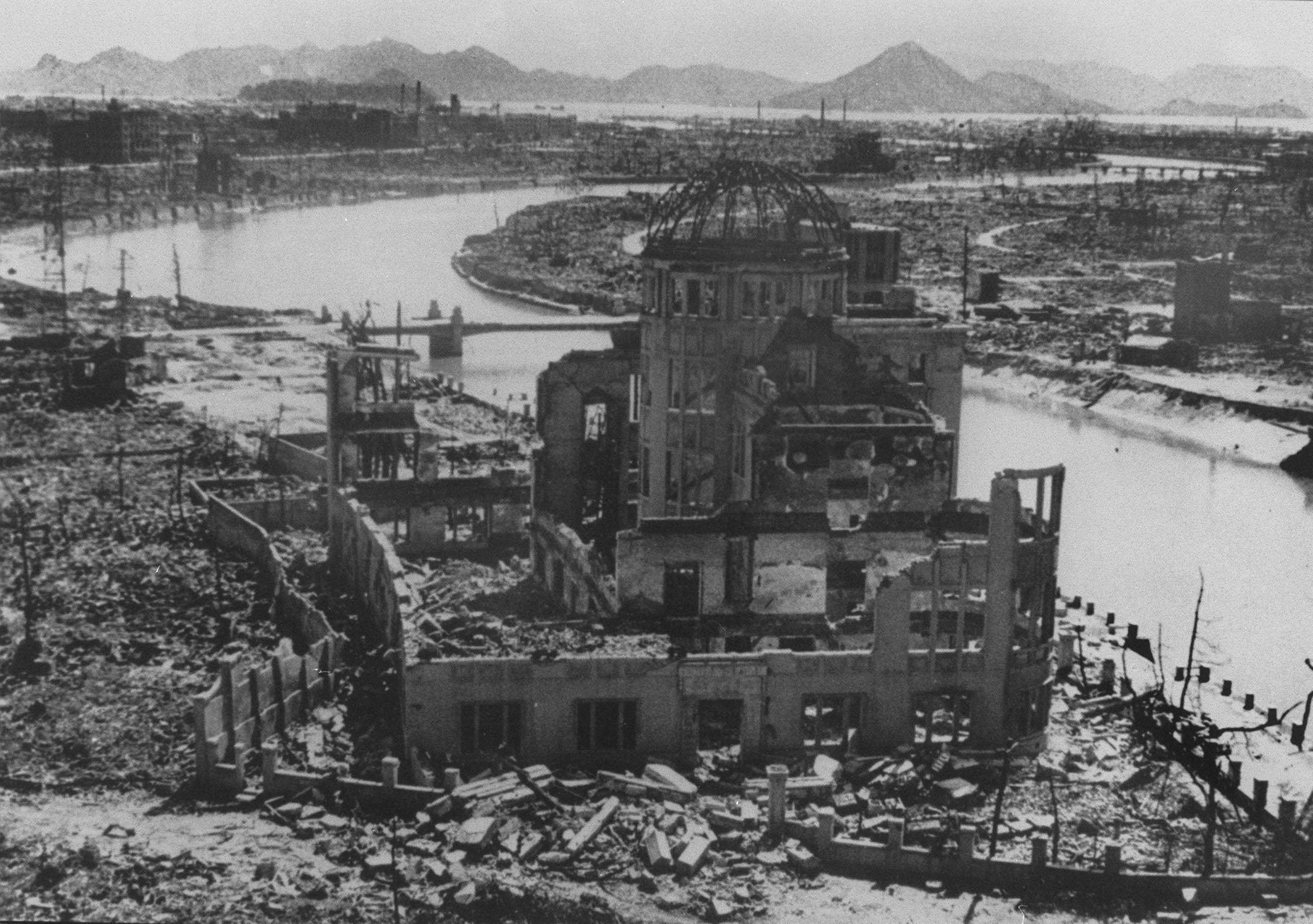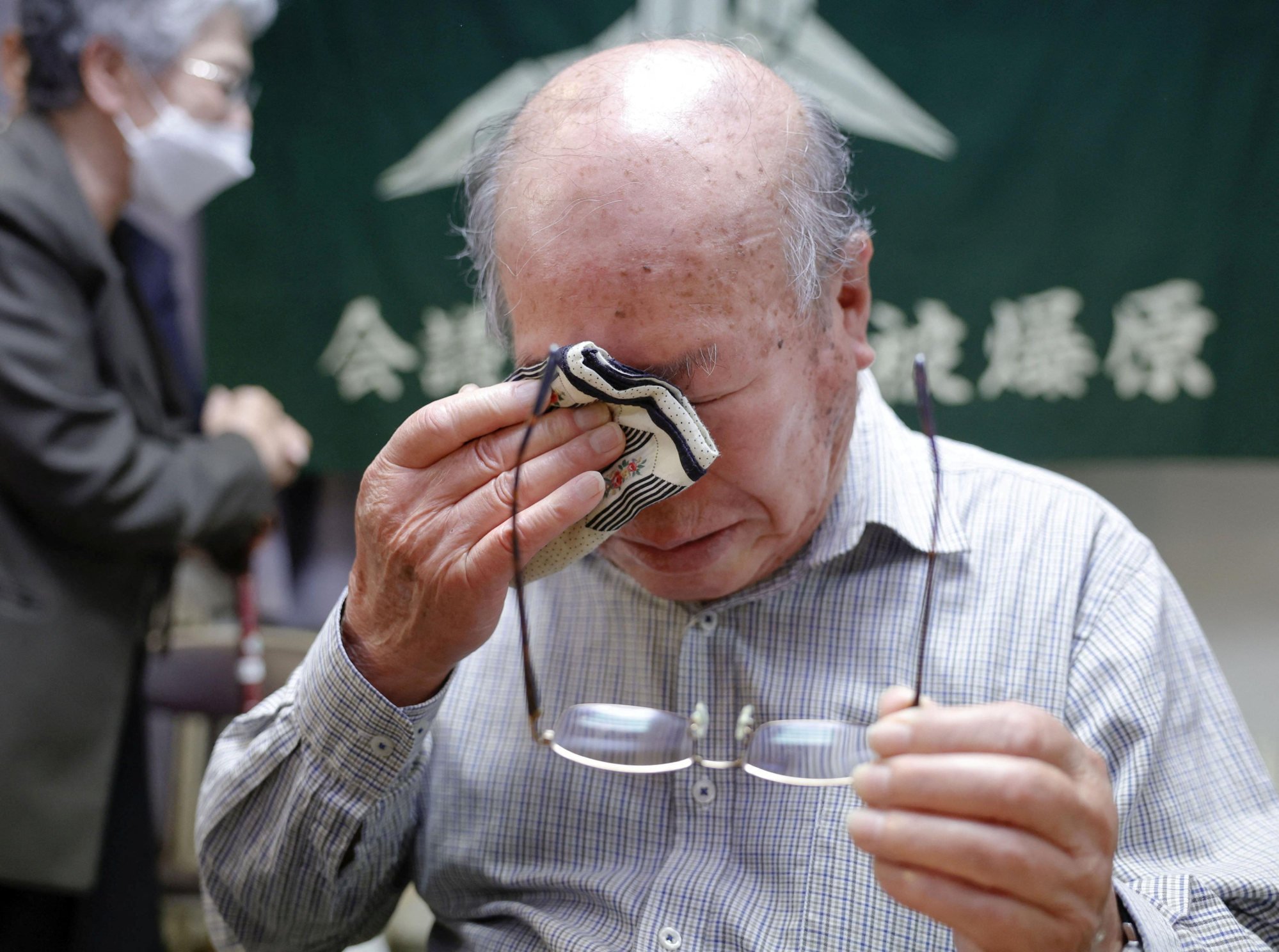Japanese angered by Trump’s Iran strike comparison to atomic bombings
Donald Trump’s comments have been slammed as ‘unacceptable’ by officials of Hiroshima and Nagasaki, and survivors of the 1945 bombings

Japanese leaders and survivors of the atomic bombings have denounced President Donald Trump’s comparison of the US strike on Iran’s nuclear facilities to the attacks on Hiroshima and Nagasaki, describing his remarks as deeply inappropriate and historically insensitive.
Speaking at a press conference on Thursday, Nagasaki Mayor Shiro Suzuki condemned Trump’s comments, saying the use of nuclear weapons was “unacceptable” no matter the circumstances – a lesson that should be self-evident from the devastating toll of the US bombing of his city on August 9, 1945.
The initial explosion from the “Fat Man” plutonium bomb killed as many as 80,000 people in Nagasaki, while many tens of thousands more died before the end of 1945 from radiation poisoning.
Suzuki said he did not understand what Trump meant in his comments. If they were designed to justify the nuclear attacks on Japan, Nagasaki and its people would express “profound regret”, he added.
Trump’s comments, delivered during a joint press conference with Nato Secretary General Mark Rutte in The Hague on Wednesday, have drawn confusion and criticism for their ambiguity.
“The damage to Iran’s nuclear facilities is extremely serious. That attack ended the war. I don’t want to use Hiroshima as an example. I don’t want to use Nagasaki as an example. But essentially it’s the same. It ended the war,” Trump said.
In a subsequent press conference on the same day, Trump mentioned the atomic bombings again: “If you look at Hiroshima and Nagasaki, you can see that they ended the war. They ended the war in a different way.”
The peace promotion division of Nagasaki City Hall provided This Week in Asia with a joint appeal that was sent on Friday by the Mayors for Peace organisation to the 193 countries of the United Nations and UN Secretary General Antonio Guterres.
While its statement did not mention the US leader by name, the message was clear.
“In this milestone 80th year since the end of World War II and the first use of atomic bombs in human history, cities and citizens continue to be affected by military attacks despite ongoing diplomatic efforts to achieve peaceful resolutions to conflicts,” the statement said.
“The use of force against any country, which results in the loss of innocent civilian lives, is totally unacceptable. All policymakers must recognise the need to sincerely heed the voices of civil society and resolve issues through rational and peaceful diplomatic means – not through violence.”
The appeal was also signed by Kazumi Matsui, the mayor of Hiroshima, where the city assembly unanimously adopted a resolution on Thursday calling for the peaceful resolution of all armed conflicts. The resolution added that the city and its residents could not accept remarks that could be interpreted as justifying the use of nuclear weapons.
The city’s officials also reiterated Hiroshima’s call for the abolition of nuclear weapons.
According to various estimates, the number of people killed in the Hiroshima bombing on August 6, 1945, including its after-effects, ranged between 90,000 and 166,000.

The Japanese government also issued a statement, albeit one carefully worded in an apparent effort not to antagonise Trump.
Chief Cabinet Secretary Yoshimasa Hayashi said the attacks on the two Japanese cities almost 80 years ago “claimed the lives of many people and inflicted unspeakable suffering”.
The use of nuclear weapons was inconsistent with the spirit of humanitarianism, Hayashi said. When asked whether Tokyo had made an official protest to Washington, he said successive Japanese governments had expressed “basic ideas” to the US about its atomic bombings on numerous occasions in the past.
Among the most outspoken critics of Trump’s comments were survivors of the attacks.
Hiroshi Nishioka, 93, told national broadcaster NHK: “The thing we fear most is justifying the use of the atomic bomb. We must raise our voices and say, ‘It should not have been used’.”
Toshiyuki Mimaki, the joint chairman of Nihon Hidankyo, Japan’s leading group of atomic bomb survivors, said: “The atomic bomb survivors are angry. I cannot help but wonder why such a statement would come from the president of the United States. For us who lost so many people and have been on the path to reconstruction amid the burned ruins, this is an unacceptable statement.”
The confederation, which was awarded the Nobel Peace Prize in 2024, expressed hopes that Trump would visit Hiroshima “at least once”.